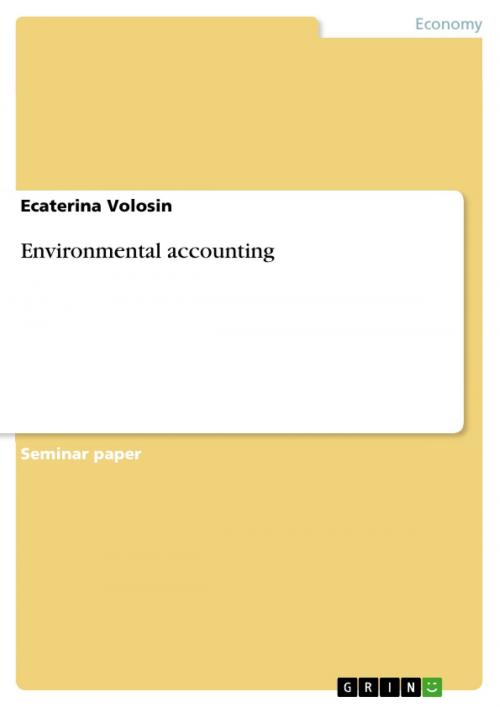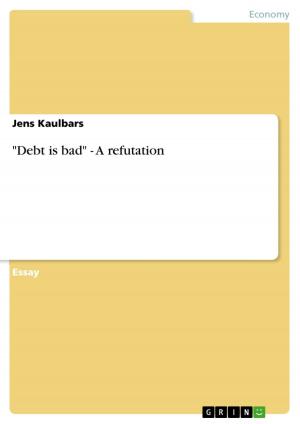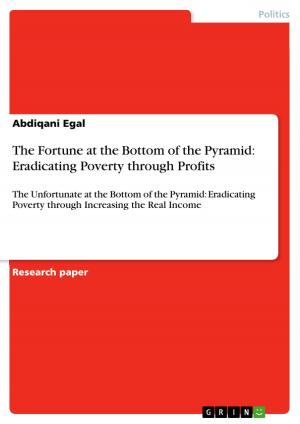| Author: | Ecaterina Volosin | ISBN: | 9783640192052 |
| Publisher: | GRIN Publishing | Publication: | October 20, 2008 |
| Imprint: | GRIN Publishing | Language: | English |
| Author: | Ecaterina Volosin |
| ISBN: | 9783640192052 |
| Publisher: | GRIN Publishing |
| Publication: | October 20, 2008 |
| Imprint: | GRIN Publishing |
| Language: | English |
Seminar paper from the year 2008 in the subject Business economics - Miscellaneous, grade: 72% (1,5), University of Glamorgan (Business School), course: Issues in Management Accounting, 20 entries in the bibliography, language: English, abstract: As an issue, the environment has been growing in significance in the minds of the community and, more recently, in the minds of business. Everyone remembers the Exxon's Valdez disaster, Shell's run-ins with Greenpeace and Nike's sweatshop scandal. Whether or not these events represented true ecological or social disasters is hotly debated, but one thing is not - they all hit the major news outlets and were public relations nightmares. To avoid such nightmares, many companies are opting for transparency not only in their financial statements, but also in their nonfinancial information, such as reports on their environmental record, social responsibility and sustainability (McCrary, 2002). In this context the aim of this paper is to examine the nature of environmental accounting and to describe how companies are responding to pressures to keep accounting records of the impact that their productive processes have on the environment.
Seminar paper from the year 2008 in the subject Business economics - Miscellaneous, grade: 72% (1,5), University of Glamorgan (Business School), course: Issues in Management Accounting, 20 entries in the bibliography, language: English, abstract: As an issue, the environment has been growing in significance in the minds of the community and, more recently, in the minds of business. Everyone remembers the Exxon's Valdez disaster, Shell's run-ins with Greenpeace and Nike's sweatshop scandal. Whether or not these events represented true ecological or social disasters is hotly debated, but one thing is not - they all hit the major news outlets and were public relations nightmares. To avoid such nightmares, many companies are opting for transparency not only in their financial statements, but also in their nonfinancial information, such as reports on their environmental record, social responsibility and sustainability (McCrary, 2002). In this context the aim of this paper is to examine the nature of environmental accounting and to describe how companies are responding to pressures to keep accounting records of the impact that their productive processes have on the environment.















